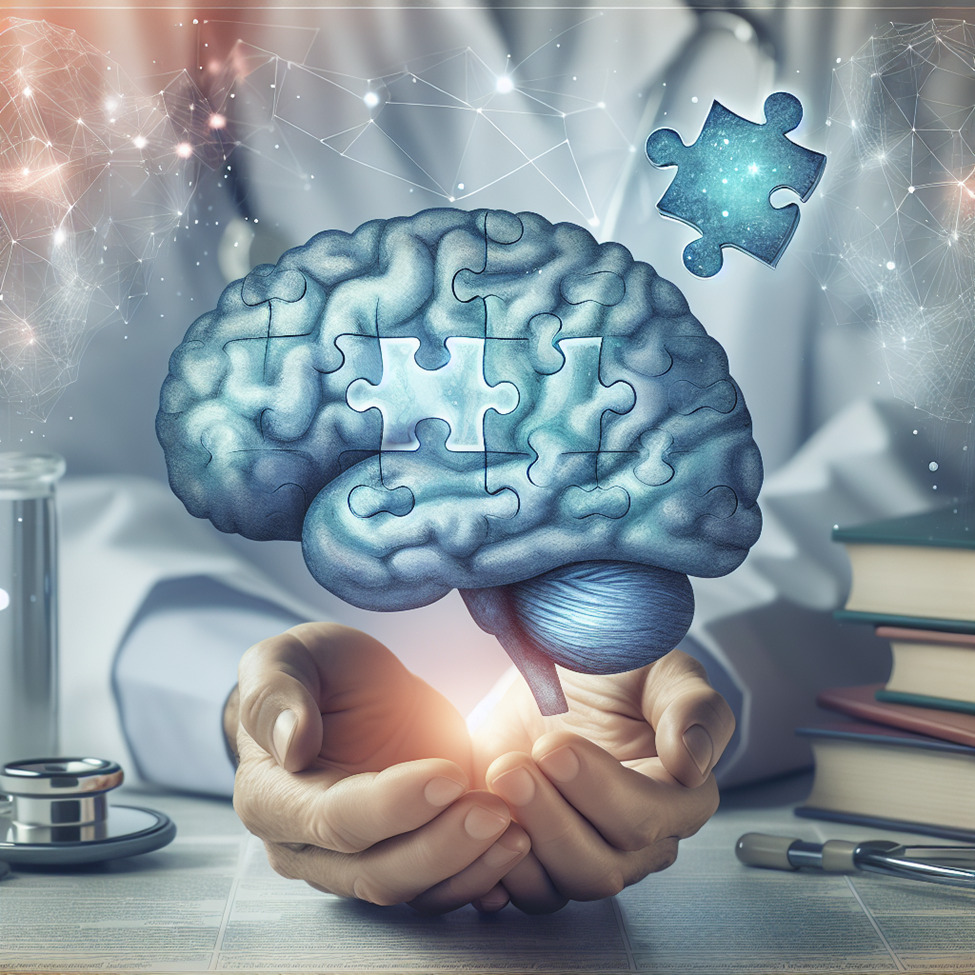
Alzheimer’s is a progressive brain disorder that gradually impairs cognitive functions, including memory, thinking, language, judgment, and learning. People often confuse Alzheimer’s with dementia, but there’s an important distinction. Dementia is a general term used to describe symptoms of cognitive decline—such as difficulties with thinking, memory, and reasoning—that interfere with daily life. Alzheimer’s, on the other hand, is a specific brain disease and the leading cause of dementia, accounting for 60 to 70 percent of cases, according to the Alzheimer’s Association.
While aging naturally brings about some cognitive changes, such as occasionally forgetting an appointment or misplacing an item, Alzheimer’s symptoms are far more severe. It affects memory, learning, decision-making, and personality in ways that disrupt daily life. As the disease advances, individuals may experience hallucinations and eventually lose the ability to care for themselves independently.
Causes of Alzheimer’s
Alzheimer’s is a neurodegenerative disease, meaning it damages neurons in the brain. Over time, the neurons deteriorate, and connections between them are lost, leading to brain shrinkage and inflammation. These changes can begin years, even decades, before noticeable symptoms appear.
For years, researchers thought that two main changes in the brain were crucial to understanding Alzheimer’s: amyloid plaques and tau tangles.
- Amyloid plaques are clumps of a harmful protein called beta-amyloid that build up outside brain cells. This protein is naturally found in the body, but in Alzheimer’s, it increases to abnormal levels and forms these plaques.
- Tau tangles happen when a protein called tau, which normally helps support the structure of brain cells and helps them transport nutrients, starts to malfunction. When tau proteins stick together in clumps inside brain cells, they disrupt the cell’s ability to function and survive.
Risk Factors of Alzheimer’s
The reasons behind these biochemical changes and their impact on cognition remain unclear. While certain risk factors are recognized, it’s impossible to predict how they will influence any individual.
While having a family history of Alzheimer’s can increase your risk, it does not guarantee you will develop the disease. Early-onset Alzheimer’s is often linked to genetic factors.
Several vascular conditions, such as high blood pressure, heart disease, and stroke, can elevate the risk. Since the brain relies on a healthy heart for its oxygen supply, maintaining cardiovascular health through regular exercise and a heart-healthy diet is crucial.
Metabolic conditions, including diabetes, high cholesterol, and obesity in midlife, can also impact your risk of developing Alzheimer’s.
Additionally, a history of traumatic brain injury, particularly those resulting in loss of consciousness, may increase the likelihood of Alzheimer’s.
While heavy alcohol consumption is associated with cognitive decline, moderate alcohol use can have different effects.
Symptoms of Alzheimer’s
Alzheimer’s typically presents with memory problems first. People may have difficulty remembering recent conversations, names, or events. These changes can begin subtly but are more drastic than natural aging. They interfere with daily activities. It becomes progressively harder for a person with Alzheimer’s to make sense of the world around them. Eventually, they become unable to function independently. Early symptoms of Alzheimer’s disease include:
- Memory loss that has progressed enough to interfere with daily life
- Inability to follow through with tasks such as paying bills or playing games
- Losing track of times and dates
- Impaired reasoning and judgment, resulting in issues with problem-solving, decision-making, and activities such as shopping or cooking
- Visual and spatial issues that may affect balance
- New problems with speaking or writing, such as having trouble finding the right word or repeating themselves
- Isolating from work, hobbies, and social life
- Mood changes that resemble depression or anxiety
- Personality changes, such as increased impulsivity and aggression
Alzheimer’s has three stages, classified by symptom severity and the level of care required. The signs of each stage include:
- Mild disease. Friends and family may notice disruptions to everyday function, memory loss, and confusion, typically leading to a diagnosis. Most people can remain independent at this stage. However, they may show increasingly poor judgment, anxiety, aggression, and personality changes.
- Moderate disease. During this stage of the disease, people typically require more supervision because damage spreads to new brain areas. As a result, they begin to have problems learning new things and performing multistep activities such as getting dressed. They may also experience hallucinations and paranoia, impulsive behaviors, wandering, and repetitive statements or movements.
- Severe disease. As damage spreads throughout the brain, people lose their ability to communicate and care for themselves. They may have difficulties swallowing and controlling their bowel and bladder, and the National Institute on Aging. The most common cause of death for Alzheimer’s patients is aspiration pneumonia, which occurs when a person loses their ability to swallow properly.
Diagnosis of Alzheimer’s
Early diagnosis of Alzheimer’s is crucial because most available medications work for earlier stages of the disease. Health care providers typically use multiple evaluations to confirm the diagnosis, such as:
- Imaging tests. An MRI, CT scan, etc. can also help rule out other conditions.
- Cognitive tests. Such tests can evaluate memory, problem-solving, attention, counting, and language.
Momentous Health, a neuropsychology clinic that provides comprehensive cognitive care, from assessment and diagnosis to cognitive rehabilitation and long-term follow-up, all in one place. We understand the impact that cognitive challenges can have on every aspect of life, from work and school to personal relationships and daily routines. Our team of highly trained neuropsychologists work collaboratively with each patient to develop individualized treatment plans that prioritize their specific needs and goals. Visit Momentous Health Website
Take care of your brain, your brain will take care of you.
